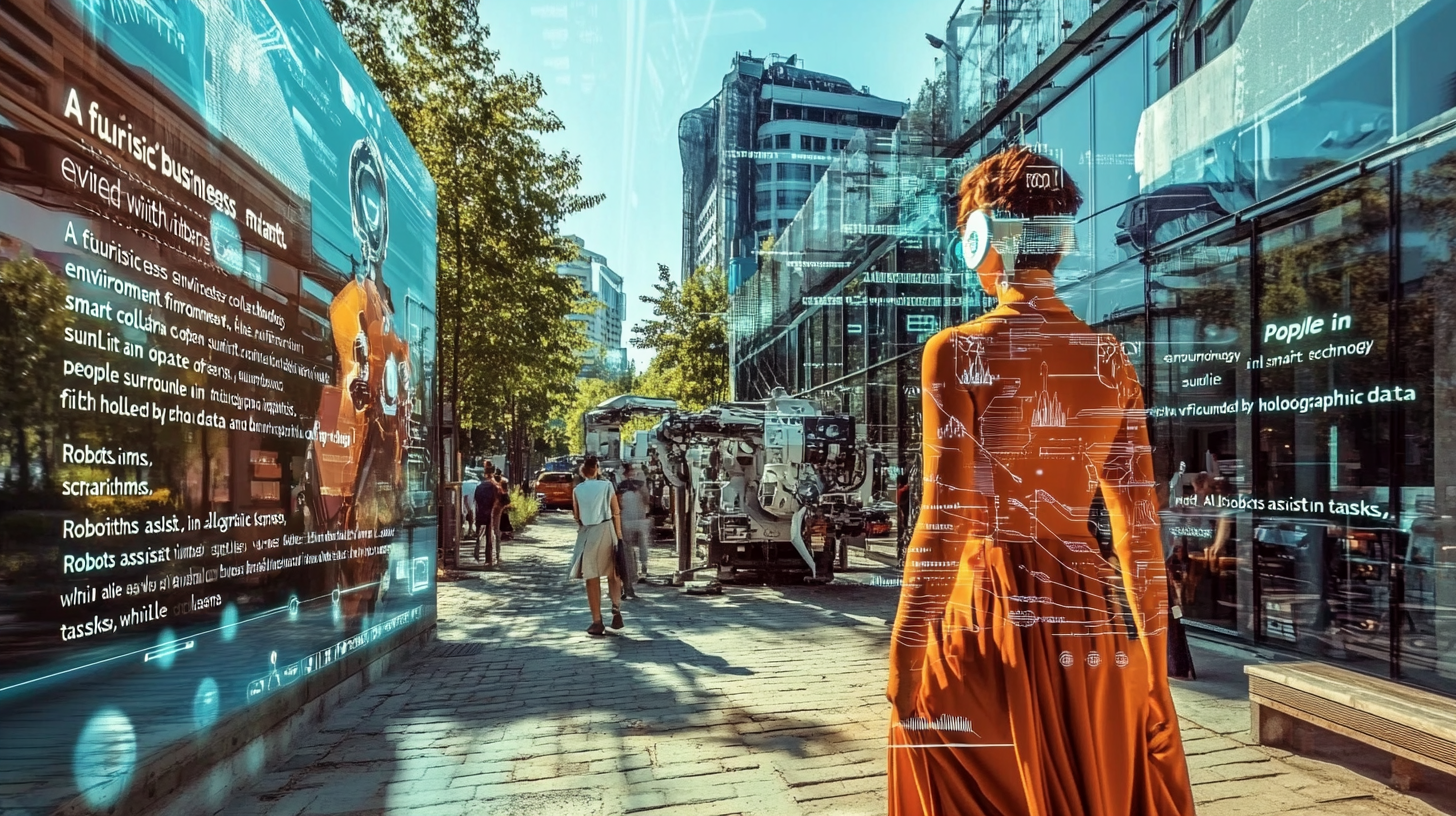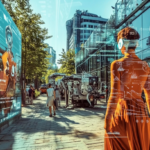In the next ten years, I believe businesses will face transformative changes driven by technological advancements, societal shifts, and economic evolution. As data becomes an increasingly valuable resource, it presents both challenges and opportunities for companies across industries. How we adapt to these changes will determine our success in a future where technology, particularly artificial intelligence, reshapes every aspect of work and life.
Data: A Valuable Resource and Opportunity
In my opinion, data is emerging as one of the most critical assets for businesses. The ability to collect, analyze, and act on data will differentiate successful companies from those that fail to adapt. Startups, in particular, need to find specific business models that utilize data effectively. For established enterprises, constant innovation is key to maintaining an edge, as they face challenges in technology integration and operational models. This shift towards data-driven decision-making requires significant investments in data analytics capabilities, skilled personnel, and a culture that embraces data at every level.
Data centers are at the core of this transformation. I’ve seen how their evolution has been remarkable—from internal storage to globally interconnected facilities supporting everything from defense systems to consumer services. Data centers are becoming more efficient and sustainable, leveraging renewable energy and advanced cooling technologies to reduce their environmental footprint. Companies like Google, Facebook, and Microsoft have redesigned data centers to maximize efficiency, energy conservation, and the ability to serve sophisticated AI tasks. These data centers are not just about storage; they are the backbone of modern AI systems, enabling real-time processing and advanced machine learning capabilities that power many aspects of our daily lives.
The Rise of AI and Its Impact on the Workforce
AI is poised to significantly change workplace dynamics, and I see this as both an opportunity and a challenge. AI models are increasingly capable of handling simple tasks, potentially replacing some basic human skills. However, core human attributes, such as creative thinking, decision-making, and the ability to adapt to complex situations, are irreplaceable. As AI takes over repetitive functions, we must cultivate a mindset that emphasizes critical thinking and problem-solving—skills that are unique to humans. Businesses need to invest in upskilling their workforce, encouraging employees to learn new technologies and develop competencies that complement AI systems rather than compete with them.
Workplace productivity is set to rise with AI advancements, which I think is a positive change. This increase in productivity can create more opportunities for individuals to enjoy life outside of work. However, it also challenges workers to stay relevant by continuously learning and adapting. Diversifying skills across different fields is crucial to enhancing one’s thinking abilities and ensuring long-term employability in this AI-driven world. Companies must foster an environment that encourages lifelong learning and provides employees with the tools and resources needed to stay ahead of technological changes.
Google, Apple, and the Future of Consumer Technology
When I look at major tech giants like Google and Apple, it’s clear they are at the forefront of integrating AI into consumer products. Google recently introduced the Google Pixel 9, which showcases the increasing scale of AI model integration in everyday devices. These companies approach AI integration in different ways—Google invests heavily in training large AI models, while Apple focuses on employing multiple smaller models to power their consumer technologies. This difference in approach reflects the varied use cases and target audiences each company aims to serve, with Google emphasizing computational power and Apple focusing on user-centric, privacy-preserving AI solutions.
One notable advancement comes from OpenAI, which recently introduced a new chat model that allows for voice interaction and supports learning math concepts. To me, this demonstrates how AI is becoming more interactive and accessible, breaking down barriers to technology use and enhancing user experience. The push towards more sophisticated AI models with multi-modal capabilities and near-human response speeds underscores the immense progress in AI and its profound impact across industries. These advancements are making AI an integral part of everyday life, providing convenience, enhancing productivity, and enabling new forms of learning and interaction.
Self-Driving Cars: Revolutionizing Mobility
The automotive industry is undergoing a revolution with self-driving cars, and I find this incredibly exciting. Companies like Waymo are making significant strides in creating autonomous vehicles that reduce accident rates and increase operational efficiency. Fully autonomous robo-taxis are already being deployed on highways and in cities like San Francisco, offering a glimpse into a future where self-driving cars become a norm rather than a novelty. These vehicles promise to revolutionize urban mobility by reducing congestion, improving safety, and providing more accessible transportation options for all.
Tesla, too, envisions a future where it generates significant revenue through the sale of autonomous vehicles. Despite the optimism, developing self-driving cars comes with technical challenges and trade-offs that need to be addressed. Safety remains a top concern, and the industry must continuously innovate to overcome these hurdles and bring reliable autonomous transportation to more markets, including Vietnam and the broader Southeast Asian region. Governments and regulatory bodies will also play a crucial role in shaping the deployment of autonomous vehicles, ensuring that they meet safety standards and integrate smoothly into existing transportation infrastructures.
Vietnam’s Economic Growth and the Rise of Data Centers
Vietnam has shown promising economic growth, with the highest GDP in two years and increased foreign direct investment (FDI). In my view, the shift of FDI from China to Vietnam signals the country’s growing importance as a key player in the global supply chain. This economic momentum is complemented by the rise of new industries, including data centers and cloud computing. Vietnam’s strategic location, young workforce, and favorable economic policies make it an attractive destination for investors looking to expand in the region.
Vietnam is developing its data center industry from the ground up, attracting investments from companies like Viettel, VNPT, CMG, and FPT Telecom. The cost of building data centers in Vietnam remains relatively affordable, positioning the country as an attractive destination for tech infrastructure development. These centers are not only critical for storing and processing data but also for supporting emerging AI and machine learning applications. The development of data centers is essential for Vietnam to become a digital hub in Southeast Asia, enabling local businesses to leverage cloud services and advanced technologies to enhance their competitiveness on a global scale.
The Environmental Challenge of Cloud Computing
The growing demand for cloud computing services is creating significant pressure on energy resources, and this is something that concerns me. It is forecasted that by 2030, data centers could consume up to 4.5% of the world’s total electricity. Companies are now focusing on designing energy-efficient data centers, adopting green energy sources, and even exploring mini nuclear reactors as a solution to meet the rising power demands. The push for sustainable power aligns with global agreements like the Paris Accord, which promotes the use of renewable energy to mitigate environmental impact. This trend highlights the importance of balancing technological advancement with environmental responsibility, ensuring that growth in cloud computing does not come at the cost of the planet’s health.
The Vietnamese government has also stepped in, allowing businesses to buy electricity directly from renewable energy providers, which supports the development of a greener, more resilient energy infrastructure. This policy is expected to further boost Vietnam’s data center capabilities and ensure their operations are both cost-effective and environmentally sustainable. As Vietnam’s data center industry grows, it will need to prioritize energy efficiency and the use of renewable energy to maintain sustainable growth and minimize its carbon footprint.
Conclusion: Embracing the Future
As I look towards the future, it is clear to me that data, AI, and technological innovation will play pivotal roles in shaping business and society. Companies that effectively leverage these technologies will have a competitive advantage, while those that resist change risk being left behind. The development of data centers, the adoption of AI, and the evolution of business models are all parts of a larger trend towards a smarter, more interconnected world. Businesses must be proactive in their approach, embracing change, and investing in technology and people to thrive in this evolving landscape.
For Vietnam, this is a time of opportunity. With rapid economic growth, rising FDI, and the ongoing development of data center infrastructure, the country is well-positioned to play a significant role in the future digital economy. Businesses must adapt to these changes, focusing on innovation, sustainability, and the cultivation of human-centric skills that technology cannot replace. By embracing these advancements, Vietnam can not only keep pace with global technological trends but also become a leader in the digital economy of Southeast Asia.
Let’s embrace the changes and continue to innovate for a better future—one that balances technological advancement with human values and well-being.

